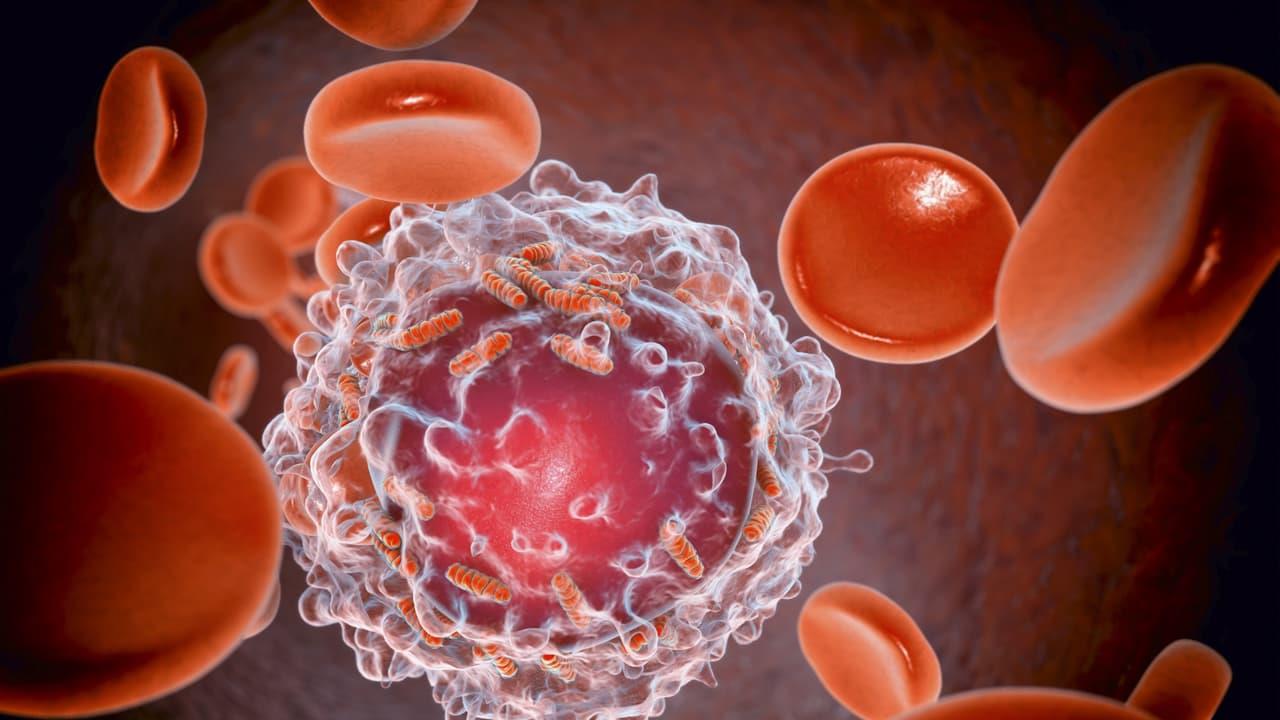
Triple Therapy Forces Leukemia Cells Into Necroptosis, Boosting Immune Attack
A team of researchers from the Institut Pasteur and Inserm has unveiled an innovative cancer-fighting strategy that uses a surprising tactic: forcing cancer cells to die in a way that alarms the immune system. Their work shows that a three-drug combination can trigger necroptosis-a highly inflammatory form of programmed cell death-to completely eliminate leukemia in preclinical models.
Necroptosis: Turning Cancer Cells Into Immune Alarms
Unlike apoptosis, which quietly removes damaged cells without drawing attention, necroptosis acts more like an alarm system. When a cell undergoes necroptosis, it releases danger signals that summon and activate immune cells, helping them detect and destroy hidden cancer cells that would otherwise cause relapse.
The research team found that malignant B cells in leukemia and certain lymphomas rarely undergo necroptosis because they lack MLKL, a key protein required to start the process. Without MLKL, cancer cells avoid sending distress signals, making them harder for the immune system to identify.
A Triple-Drug Strategy Unlocks Necroptosis
To overcome this barrier, the scientists combined three clinically approved drugs. Together, the drugs restored the molecular pathway needed to trigger necroptosis in malignant B cells. Once necroptosis was activated, cancer cells released strong immune-stimulating signals-and the animals' immune systems mounted a full attack.
In preclinical models, this triple therapy led to complete elimination of leukemia, marking a major step toward a new class of immunotherapies for blood cancers.
“The triple therapy forces cancer cells to die in a way that alerts and activates the immune system,” explains Philippe Bousso, Inserm Research Director and head of Institut Pasteur's Dynamics of Immune Responses Unit.
Watching the Immune System in Real Time
Using advanced intravital imaging, the researchers visualized how immune cells and cancer cells interacted inside living tissue. They were able to see how the shift toward necroptosis produced a stronger, more coordinated immune attack compared with other forms of cell death.
Bousso notes that this strategy could open the door to treatments for B-cell leukemias and lymphomas that currently resist conventional therapies.“By changing the way cancer cells die, we can harness the support of our immune system to fight against the tumor,” he says.
The study was published in Science Advances and supported by the European Research Council and the ARC Foundation for Cancer Research.
Legal Disclaimer:
MENAFN provides the
information “as is” without warranty of any kind. We do not accept
any responsibility or liability for the accuracy, content, images,
videos, licenses, completeness, legality, or reliability of the information
contained in this article. If you have any complaints or copyright
issues related to this article, kindly contact the provider above.


















Comments
No comment